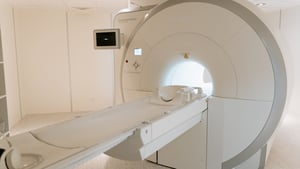 The shutdown of GE Healthcare’s Shanghai, China plant that began in April has caused a global shortage of the iodinated contrast media iohexol (GE’s Omnipaque TM). GE reports that it has returned to a 50% production rate, and they have shifted some production to a plant in Ireland, but they expect an 80% reduction in supplies through June. Alternative contrast agents such as iodixanol (GE’s Vispaque TM) and ioversol (Optiray[1]) are becoming scarce as practices have shifted to using those products instead of iohexol. As of May 31, Omnipaque, Vispaque, and Ultravist (Bayer’s iopromide) have been added to the FDA’s list of drug shortages.
The shutdown of GE Healthcare’s Shanghai, China plant that began in April has caused a global shortage of the iodinated contrast media iohexol (GE’s Omnipaque TM). GE reports that it has returned to a 50% production rate, and they have shifted some production to a plant in Ireland, but they expect an 80% reduction in supplies through June. Alternative contrast agents such as iodixanol (GE’s Vispaque TM) and ioversol (Optiray[1]) are becoming scarce as practices have shifted to using those products instead of iohexol. As of May 31, Omnipaque, Vispaque, and Ultravist (Bayer’s iopromide) have been added to the FDA’s list of drug shortages.
The American College of Radiology (ACR) encourages practices to contact their local GE diagnostic pharmaceutical representative for the most current information. In addition, the ACR offers risk mitigation strategies and other resources on their website. Above all, they stress the need for sound clinical judgment in all decisions affecting patient care.
Practices have found that ordering physicians are inappropriately ordering studies without contrast, which necessitates a phone call from the radiology techs to have the order changed. The ACR notes that its Appropriateness Criteria Portal can be used to search for alternative imaging studies for a given indication (that may not require contrast material) by clicking the “Explore by scenario” icon. One strategy being employed by radiology practices and hospitals is to conserve their supply of contrast material by deferring non-emergent contrast exams or to perform non-contrast studies when possible. Another strategy is to use MRI in place of contrast CT exams when it is clinically appropriate.
In response to a joint letter from the ACR and the Radiology Business Management Association (RBMA), United Healthcare addressed both the improper ordering and deferral concerns. United states that, “Providers seeking to modify the CPT code for a completed notification/authorized CT with contrast procedure, to a non-contrast CT, will not be required to notify UnitedHealthcare to modify the existing notification/prior authorization record for CPT code combinations.” They note that their approved combinations of CPT codes are available online under the Specific Radiology Programs heading.
United also reports that, “During the contrast shortage, at the time of the initial request, providers can also request an extension for the duration of an authorization for a CT with contrast from the standard 45 days to up to 90 days, recognizing that many non-emergent and elective procedures may be rescheduled during this time.” Radiology groups should work with their ordering physician community to make them aware of these two aspects of prior authorization from United Healthcare, and check with other carriers about their policies, as well.
The shortage is affecting hospitals and radiology groups in different ways, according to a panel discussion presented by AuntMinnie.com. Some report no real issues due to a diverse supply chain, the size of the organization, and their ability to share supplies across their network of facilities. Smaller institutions and practices that have concentrated their contrast purchasing in one product line will be impacted more severely.
The situation is dynamic, with new updates appearing almost daily. So far, United Healthcare is the only payer to respond to the ACR/RBMA letter. We will update this article as we learn new information that will be useful to our readers. As the ACR recommends, the best information about supplies will be available from your pharmaceutical supply representative. Subscribe to this blog for the latest information.
[1] Optiray® is a registered trademark of Guerbet LLC or its affiliates.
Sandy Coffta is the Vice President of Client Services at Healthcare Administrative Partners.
When Will Programs and Policies Enacted During the Pandemic End?
Appropriate Use Criteria (AUC) Penalty Phase Set to Begin
Provider Relief Fund Reporting Extensions Are Available For Extenuating Circumstances
Follow HAP on Twitter
Like HAP on Facebook
Copyright © 2022 Healthcare Administrative Partners. All Rights Reserved.






